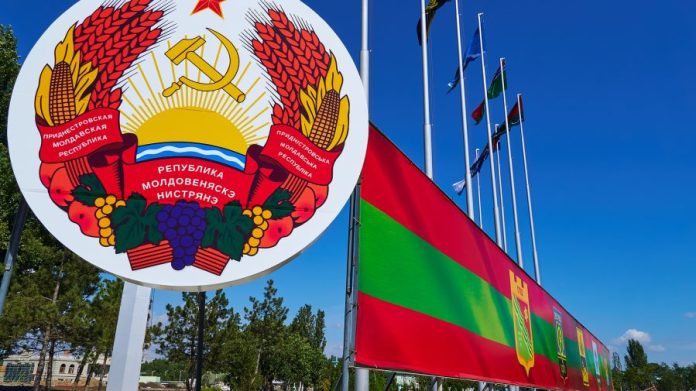Chisinau must apply the elements of a deterrence policy in relation to the Transnistrian region. The conditionality imposed on the Republic of Moldova by the European Union regarding “deoligarization” also targets the left of the Dniester. The statements were made by the former deputy of the DA Platform, Igor Munteanu, during public debates, organized by the IPN Press Agency.
The former deputy believes that “the tolerance of the government in Chisinau towards the abuses of the regime in Tiraspol only encourages the elites on the left of the Dniester to procrastinate the settlement of the conflict”, IPN notes.
According to Munteanu, the policy of small steps promoted by the governments in Chisinau can be associated with a constant concession in favor of Tiraspol, as the illusion of a power parity between the two banks is created. The ex-ambassador of the Republic of Moldova in the USA says that Chisinau must discourage the secessionist policy of Tiraspol through tough restrictions imposed on businessmen on the left side of the Dniester.
“As long as there is an unconstitutional army on the left of the Dniester that can attack us at any time, we cannot say that it is peace, but that it is a latent war. The Republic of Moldova must overcome the perception of a fatality, such as that we cannot do things because the Russian Federation is strong and therefore we must buy energy from the left of the Dniester, for example. What we can do is apply the elements of a policy of deterrence. That is, limiting the capacities of the Transnistrian elites to impose their will on the political, economic, social, and military domains. We have to use democratic conditionality against any kind of interests of groups in Transnistria to maintain trade with the EU, to trade with the right side of the Dniester, for example,” said Igor Munteanu.
In Munteanu’s opinion, Chisinau must put an end to Tiraspol’s abuses by forcing the entities on the left of the Dniester to comply with national legislation. In this context, he invoked the activity of the Rîbnița Metallurgical Plant, one of the biggest contributors to the separatist region’s budget.
FOR THE MOST IMPORTANT NEWS, SUBSCRIBE TO OUR TELEGRAM CHANNEL!
“Policy should be changed towards the citizens employed in the force structures of the Transnistrian regime, from the special services (the Transnistrian KGB) to the people employed in the Transnistrian army. Without these elements of deterrence, the Republic of Moldova is extremely volatile in its intention to regulate this conflict. The conditionality formulated by the European Council in relation to the Republic of Moldova on deoligarization also refers to the types of policies that Chisinau must have in relation to Transnistria. MMZ is still the property of Alișer Usmanov, the micro-oligarchs from Transnistria are very influential because no one has ever imposed restrictive conditions on them”, he pointed out.
Igor Munteanu also says that Chisinau must diversify its sources of electricity, in order to reduce its dependence on the Cuciurgan Power Plant. The energy dependence on the left of the Dniester was artificially maintained by the previous governments, as corruption dominated the processes, says Igor Munteanu.
“Access to gas ‘out of thin air’ or money ‘out of thin air’ is the problem. As long as this state of affairs is tolerated, there will be no desire to seek compromise on the left side of the Dniester. And the right side, if they don’t look for alternatives, is at the mercy of the elites from Tiraspol. Over time, this was not done as a result of complicity and corruption in Chisinau. This was tolerated, including, by the external partners, thinking that in this way the shores were getting closer. Actually, the pockets were getting closer. As long as the same practices from the time of the Plahotniuc regime are tolerated now, we are only falsifying the realities”, said Igor Munteanu.


